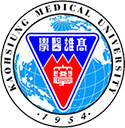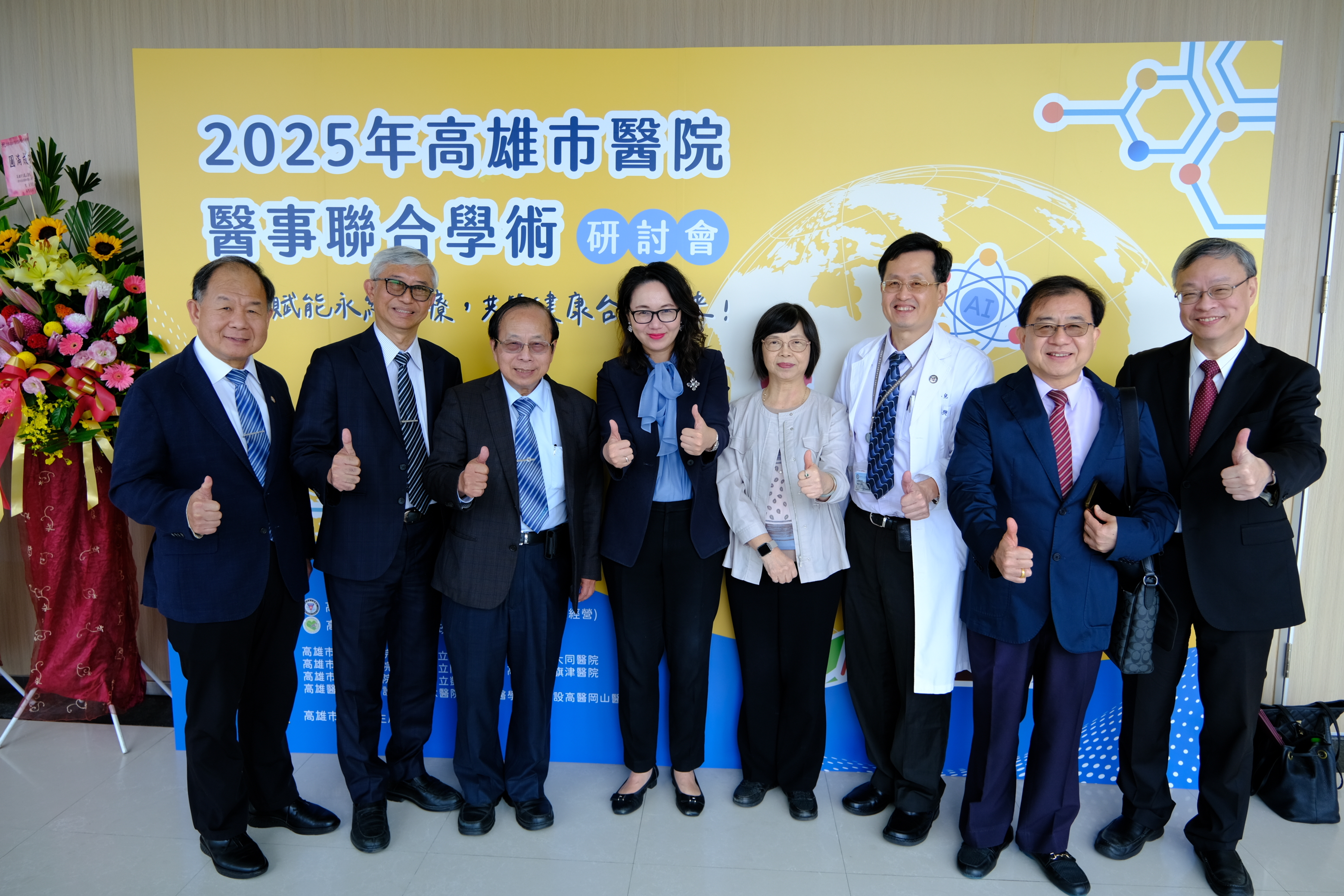The “2025 Kaohsiung Municipal Hospitals Allied Medical Symposium”, co-organized by Kaohsiung Municipal Siaogang Hospital and the Kaohsiung Association of Medical Affairs and Administration, was grandly held on October 20 at the International Conference Hall of Siaogang Hospital’s Acute and Critical Care Building.
This year’s theme, “Digital Empowerment for Sustainable Healthcare: Building a Healthy Taiwan Together,” brought together key figures including National Health Insurance Administration (NHIA) Director-General Dr. Liang-Yu Chen, Kaoping Regional Office Director Shu-Hua Lin, Yu-Ing Medical and Nursing College Chairman Dr. Ming-Feng Hou, Yuanlin Christian Hospital Superintendent Dr. Kuo-Wei Lee, and leaders from multiple Kaohsiung hospitals — showcasing the diverse achievements of Southern Taiwan’s healthcare system in smart medicine, long-term care policy, and ESG sustainability.
This year’s symposium received an overwhelming response, attracting submissions from healthcare institutions and professionals across Taiwan. Topics covered a wide range of fields — medical quality and patient safety, hospital management, ESG sustainability, smart healthcare, long-term care, health promotion, holistic care, and friendly workplaces. After a rigorous review process, 29 oral presentations and 527 poster papers were selected and showcased, demonstrating the medical community’s rich research capacity and practical innovation.
The symposium opened with a keynote address by Dr. Kuo-Wei Lee, Superintendent of Yuanlin Christian Hospital, titled “Challenges and Responses in the Current Hospital Landscape — The Role of AI in Medical Collaboration.”
Dr. Lee noted that hospitals are facing multiple challenges — population aging, workforce shortages, and rapidly increasing healthcare demands — making it difficult for traditional models to balance efficiency and quality. He emphasized that AI integration is not merely a technological upgrade, but a key opportunity for healthcare transformation. However, he also cautioned that successful AI implementation must carefully address data privacy and ethical considerations to realize its full potential.
Next, NHIA Director-General Dr. Liang-Yu Chen delivered a keynote speech titled “New Health Insurance Policies for an Aging Society.”
In her first public address since assuming office, Dr. Chen highlighted that Taiwan’s National Health Insurance (NHI) system is facing the dual challenges of an aging population and declining birth rate. She stressed that only through proactive reforms and forward-thinking strategies can Taiwan maintain both financial stability and quality care — achieving true sustainability.
Dr. Chen explained that the NHI’s financial health has been significantly affected by demographic shifts and rising healthcare needs. To ensure long-term balance, diversifying funding sources and reforming the supplementary premium system have become key priorities, ensuring fair contribution while maintaining protection for seniors requiring chronic disease and long-term care services.
Following the national policy discussion, Siaogang Hospital Superintendent Dr. Chih-Hsing Hung shared the hospital’s tangible achievements in ESG sustainability and smart governance.
He noted that Siaogang Hospital has received multiple recognitions, including being the first medical institution to obtain ISO 14064-1 Greenhouse Gas Inventory certification, earning both Green and Bronze Net-Zero Labels from the Taiwan Net-Zero Action Alliance, and reducing carbon emissions by 28% compared to the baseline year. The hospital is also advancing toward comprehensive Smart Hospital certification, marking a major milestone in its digital transformation journey.

